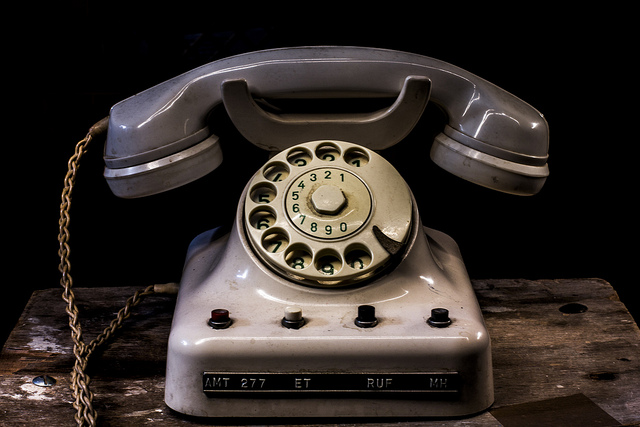
As a number of commentators have observed, the phone call between Taiwanese president Tsai Ing-wen and US president-elect Donald Trump has set a cat among the pigeons. It has breached a practice in place since 1979 whereby the US recognises Taiwan as part of ‘One China’. While there have been quiet written communications between Taiwan’s leadership and America’s presidents, there hasn’t, until now, been verbal communication by presidents or presidents-elect.
The call was staffed by Trump’s transition team. Trump is surrounded by advisers whose suggestions range from using the Taiwan relationship to pressure China while not breaching the ‘One China’ policy, to conducting a diplomatic build-up in Taiwan and ‘ultimately restoring full diplomatic recognition’, as one potential appointee as secretary of state, John Bolton, advocated earlier this year.
Two members of the transition team, Alexander Gray and Peter Navarro, argued, just before the election, for a substantial quantitative and qualitative increase in arms sales to Taiwan. They said that while President Obama was right to pivot to Asia, the administration had been ‘feckless and mendacious’ in its implementation, alienating the leadership of the Philippines and the military government in Thailand. In effect, they suggested Obama’s careful work through Asia’s multilateral channels and deep diplomatic engagement with Beijing should be replaced by a ‘peace through strength approach’. In their view, America needs to boost its military capabilities in the Asia–Pacific, and indeed that that’s what the region truly expects and respects from American engagement.
This school of critics believes that Obama’s policy has smoothed the way for China’s regional supremacy, hasn’t been an effective check on China’s behaviour in the South China Sea, and has undermined confidence among Washington’s friends and allies in the region. China’s description of its South China Sea claim as a ‘core interest’, previously only used by Beijing to describe its position on Taiwan, has devalued the term’s meaning. So in a sense this is a chicken coming home to roost. Nevertheless, should Trump continue high-level verbal dialogue with Taiwan the impact would be profound on Sino-American relations.
Quoted in an article by Jane Perlez last week, Shen Dingli of Fudan University said:
I would close our embassy in Washington and withdraw our diplomats. I would be perfectly happy to end the relationship. I don’t know how you are then going to expect China to cooperate on Iran and North Korea and climate change. You are going to ask Taiwan for that?
While the implications aren’t quite that severe, taken together with Trump’s plan to declare China a currency manipulator and broader threats to impose punitive tariffs, any further moves to change the character of relations with Taiwan would bring volatility to US–China relations.
The problem is, as Newt Gingrich said a few months ago, ‘Trump doesn’t know what he doesn’t know.’ He knows very little about the complex set of arrangements between Taipei, Beijing and Washington. They’ve allowed Taiwan to evolve into a prosperous democracy and allowed the US to establish a position to deter the realisation of ‘One China’ by anything less than peaceful means. China has accepted that, but dissenters remain in China, including in elements of the PLA which continue to build up capacity in order to forcefully seize Taiwan. No longer can the US operate surface ships in the Taiwan Strait in a hostile environment. Even with activity east of Taiwan, war gaming by organisations such as RAND have suggested American carriers would be highly at risk. In a worst-case scenario, the combined effects of the trade and Taiwan initiatives would strengthen the hand of those in Beijing wanting to bring forward military means to resolve unification.
One recollects here foreign minister Alexander Downer’s suggestions in August 2004 that a Chinese attack on Taiwan wouldn’t necessarily trigger ANZUS: ‘The ANZUS Treaty is invoked in the event of one of our two countries, Australia or the United States, being attacked, so some other military activity elsewhere in the world … doesn’t automatically invoke the ANZUS Treaty.’ A few months later I became opposition leader. I then had the Chinese embassy quietly advised that, as such a move would invariably involve US military forces, the treaty would be applicable if there was a Labor government. Australia couldn’t afford for the situation to get out of hand then, and it can’t now.
The Australian government should at least be getting a read out on possible directions that Trump will try to navigate Washington’s relationship with Beijing. It appears that Trump will declare China a ‘currency manipulator’, and that his constituency expects him to move on the US–China trade relationship. For our part, Australia would want him to pick his fights carefully, mindful of the economic and security consequences for China, the US and all of us in the middle.
If the Australian government understands what’s at stake, now’s the time for quiet advice to the Trump team. As Taiwan has been able to develop as it has wanted and its economy is deeply integrated with that of the mainland, Trump should let the Taiwan initiative end here.

